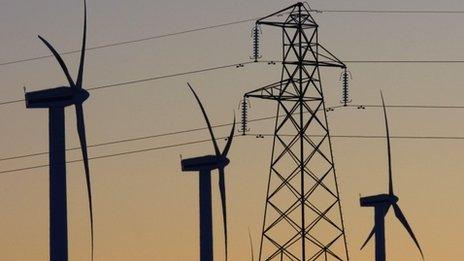Nuclear power plant 'good deal' for UK
- Published
Will the new nuclear plant mean cheaper bills? Energy Secretary Ed Davey is challenged at a news conference
Energy Secretary Ed Davey has defended building the UK's first nuclear station in a generation as "a very good deal for Britain".
French giant EDF will lead a consortium to build the Hinkley Point C plant in Somerset.
But environmentalists said the money could be better spent on renewables.
The government estimates that energy bills will be £77 lower by 2030, but Mr Davey could not guarantee this because of the "uncertainties".
When running at full capacity the new Hinkley plant is expected to generate around 7% of the UK's electricity.
The consortium and the government have agreed a "strike price" of £92.50 for every megawatt hour, almost twice the current wholesale cost of electricity.
This will fall to £89.50 for every megawatt hour of energy if EDF Group goes ahead with plans to develop a new nuclear power station at Sizewell in Suffolk. Doing both would allow EDF to share costs across both projects.
"In terms of the per-megawatt hour price - which is what people are talking about today - the solar industry is asking for less than what the nuclear industry's getting," said Greenpeace's chief scientist Doug Parr.
"They will be producing power cheaper than nuclear by the time Hinkley comes on stream. So we don't think this represents good value for money when we're locking in those price levels for 35 years."
Wholesale cost of generating electricity in £/MWH
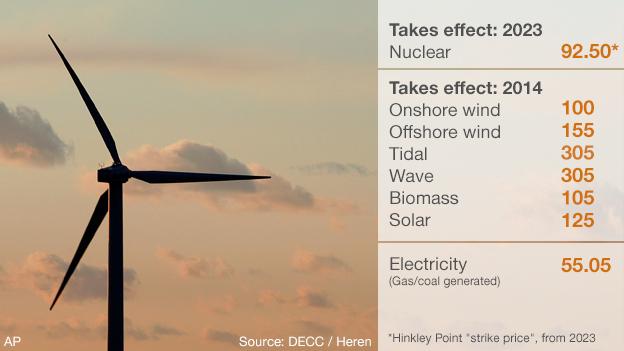
Labour leader Ed Miliband, who has pledged to freeze energy prices for 20 months if he wins the next election, said the party supported the development of new nuclear power stations, but would scrutinise the terms of the deal to ensure it delivered value for money for consumers.
"We've got the prime minister who says he can fix prices 35 years ahead for the energy companies but he can't freeze prices now for the consumer. No wonder we've got a cost of living crisis in this country," he added.
Keeping lights on
Mr Davey said: "We're facing a looming energy crisis.
"If people at home want to be able to keep watching the television, be able to turn the kettle on, and benefit from electricity, we have got to make these investments.
"It is essential to keep the lights on and to power British business.''
The government estimates that with new nuclear power - including Hinkley - the average energy bill in 2030 will be £77 lower than it would have been without the new plants.
Mr Davey plans to submit the UK's application for state aid clearance to the European Commission for the new nuclear power plant later this week,
"I'm confident we will manage to argue our case," Mr Davey said.
EDF chief executive Vincent de Rivaz called the deal "good, fair and balanced for consumers, the UK and EDF".
The two reactors planned for Hinkley, which will provide power for about 60 years, are a key part of the coalition's drive to shift the UK away from fossil fuels towards low-carbon power.
Ministers and EDF have been in talks for more than a year about the minimum price the company will be paid for electricity produced at the site, which the government estimates will cost £16bn to build.
Ed Miliband: "The prime minister... can't freeze prices now for the consumer"
Green MP Caroline Lucas described it as a "terrible deal for billpayers" and called for the National Audit Office to investigate the value for money of the government's deal.
'Precious investment'
Mr Davey said the deal was "competitive" with other large-scale clean energy and gas projects.
"While consumers won't pay anything up front, they'll share directly in any gains made from the project coming in under budget," he added.
Angela Knight, chief executive of trade body Energy UK, said that, given the UK would not have to pay anything until Hinkley Point C produced energy - expected in 2023 - there was time to act to reduce energy use.
"We've got 10 years in which to insulate our homes better. We've got 10 years to take the steps that some other countries have taken - especially those in colder countries - to make sure that we can keep warm but use less," she said.
However, Friends of the Earth's policy and campaigns director Craig Bennett said the agreement meant "locking the UK into costly nuclear power for decades".
"The quickest way to end our costly fossil fuel dependency is through energy efficiency and renewable power, not new reactors that will suck up precious investment and take years to complete," he said.
Dr Paul Dorfman, from the Energy Institute at University College London, said "what it equates to actually is a subsidy and the coalition said they would never subsidise nuclear".
He added: "It is essentially a subsidy of between what we calculate to be £800m to £1bn a year that the UK taxpayer and energy consumer will be putting into the deep pockets of Chinese and French corporations, which are essentially their governments."
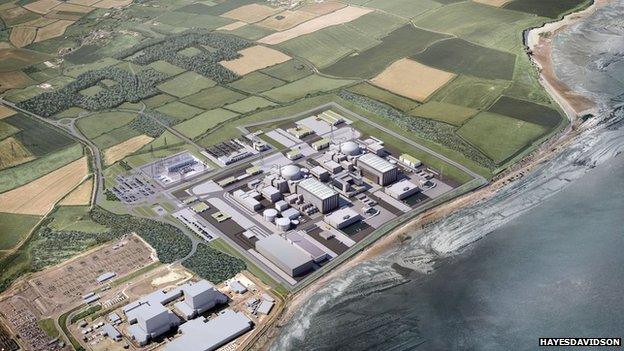
Hinkley Point C is set to take 10 years to become fully operational. It will be made up of two nuclear reactors and will be built next to Hinkley Point A and B.
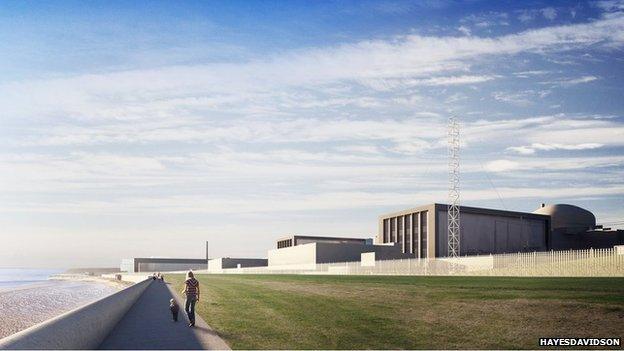
The land will need to be flattened and then the sea wall will be built. After this, excavation work can start to lay the foundations of the nuclear plant including two underground two-mile (3km) tunnels for the cooling water.
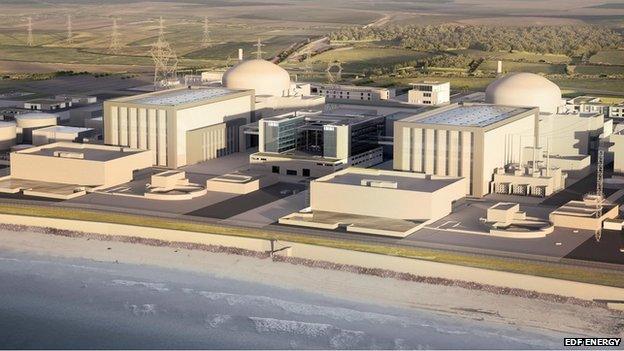
The building of the two reactors will be staggered with the first reactor expected to be operational by 2023.
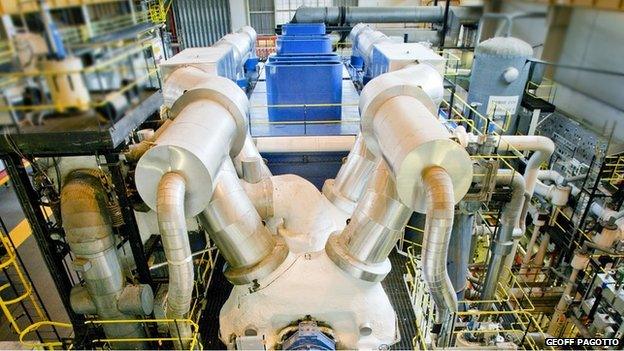
The other aspects of the build include the turbine halls, standby power generators and a pumping station for the cooling water, interim waste storage facilities as well as a visitors' centre.
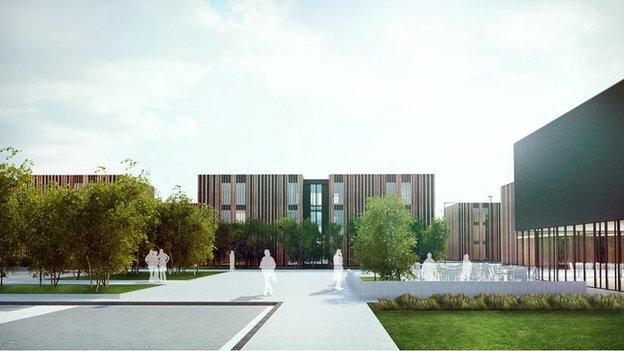
Workers' accommodation will be built across three sites, with two in Bridgwater and a third on site. Other infrastructure includes building two park and ride sites and developing Combwich Wharf.
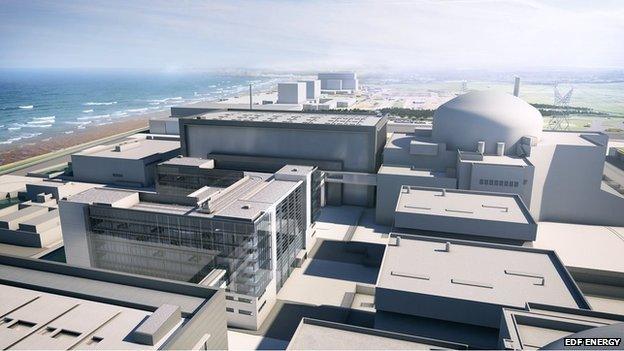
The power station is expected to provide up to 25,000 jobs during the lifetime of the project and once built will provide about 900 full-time jobs.
China invests
Chinese companies China National Nuclear Corporation and China General Nuclear Power Corporation will be minority shareholders in the project.
The move follows Chancellor George Osborne's announcement last week that Chinese firms would be allowed to invest in civil nuclear projects in the UK.
The announcement is not legally binding and it will be 2014 before EDF makes a final investment decision on the project.
But it comes as concerns about domestic energy bills move up the agenda, with SSE, British Gas and Npower, three of the UK's "big six" gas and electricity suppliers, all having announced price increases.
About 25,000 jobs are expected to be created during construction of the power plant, as well as 900 permanent jobs during its 60-year operation.
- Published21 September 2015

- Published17 October 2013
- Published17 October 2013
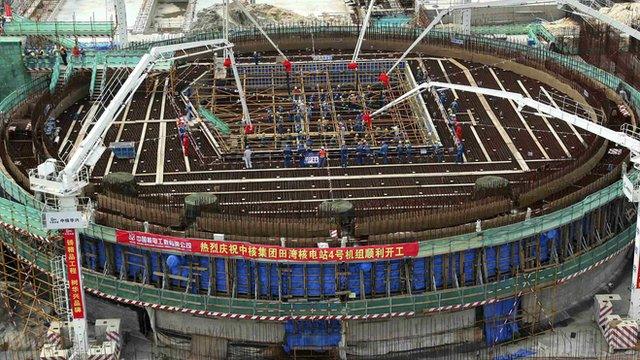
- Published20 October 2013
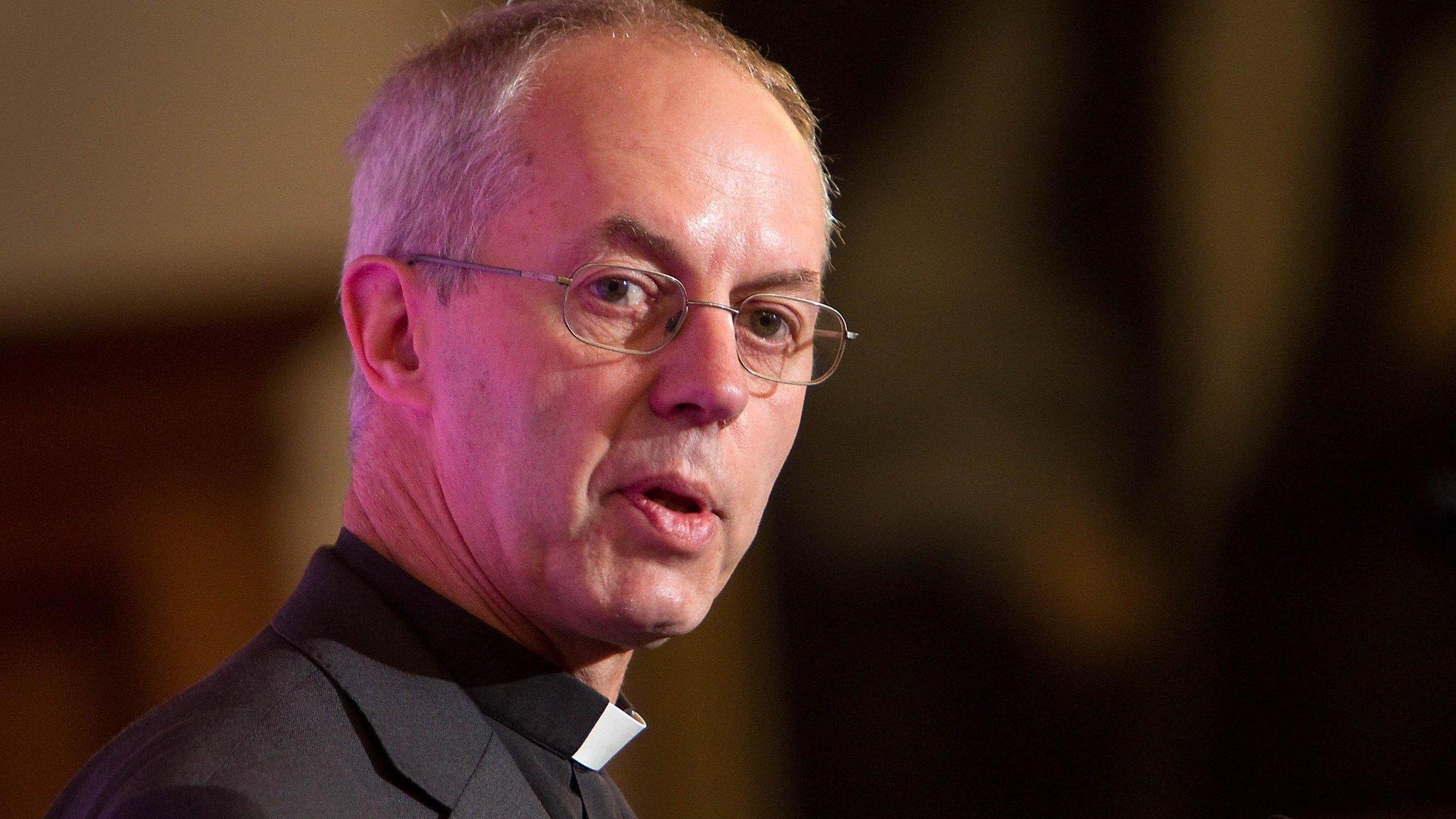
- Published17 October 2013
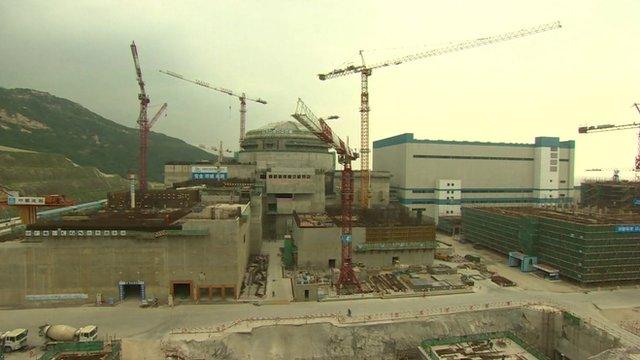
- Published13 October 2013
